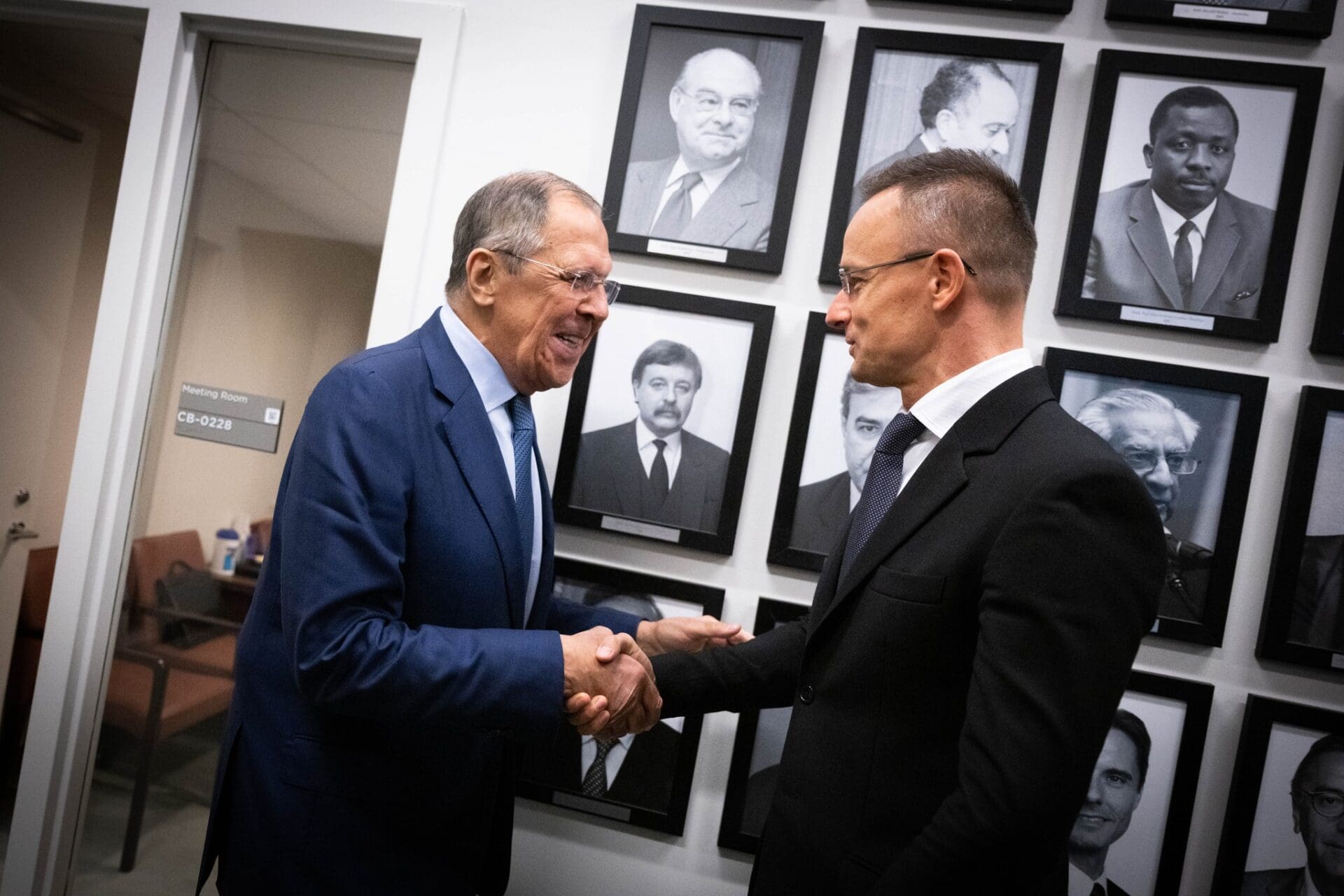The Meeting
Péter Szijjártó met Russian Foreign Minister Sergei Lavrov on 23 September in New York. As Hungary borders Ukraine, any and all consequences of the war severely affect the country almost instantly, Mr Szijjártó said to minister Lavrov during their meeting that took place on the sidelines of the UN General Assembly. He mentioned soaring inflation and a massive influx of refugees as examples. Mr Szijjártó expressed the conviction that the only solution to these problems is peace. He stressed that Hungary sides with peace, but achieving it requires negotiations and dialogue.
‘Unfortunately, at the end of the fourth day [of the UNGA] we must report that no such negotiations have taken place and it is extremely doubtful that they will in the days left. The UN General Assembly would provide the best opportunity for these talks to begin,’ the Hungarian foreign minister remarked. He added that no other EU foreign minister had met with Sergei Lavrov.
‘Lawmakers, commentators, mouthpieces, and media representatives of the Hungarian opposition may wonder why I met Sergei Lavrov, but I think that communication is essential to achieving peace,’ Mr Szijjártó explained, noting that if diplomatic channels are shut down, the world will face dire consequences. The Hungarian foreign minister also issued a warning regarding the energy crisis, saying that without Russian energy supplies, Hungary’s economy would be unable to function, and people would not be able to heat their homes and their water, or even cook.
Stable Supplies
‘This fact, which is a fact of physical reality, can be liked or disliked. Because of the infrastructure in Central Europe, Russia has a crucial role to play in the supply of both gas and oil,’ Mr Szijjártó nailed down. He highlighted that in accordance with a recent agreement, Gazprom continues to send the extra 5.8 million cubic metres of gas to Hungary in addition to the amount contracted earlier, every day without interruption. Since supplies from the north and west are scarce, the Turkish Stream pipeline has emerged as the most dependable mode of transportation between Russia and Europe, he continued.
‘Hungary is implementing a sensible energy policy, and working with Russia and Gazprom is in our national interest, as doing otherwise would jeopardise the security of Hungary’s energy supply,’ the minister said. The inauguration of the new reactor units at the Paks nuclear power plant in 2030 will allow Hungary to partially detach itself from the uncertainty and price increases that characterise the global energy market, Mr. Szijjártó added. He emphasised that it is good news that the Paks plant has received another fuel shipment from Russia, albeit by detour through Northern and Western Europe. This means that the reactor’s operation appears to be guaranteed for the upcoming period.








